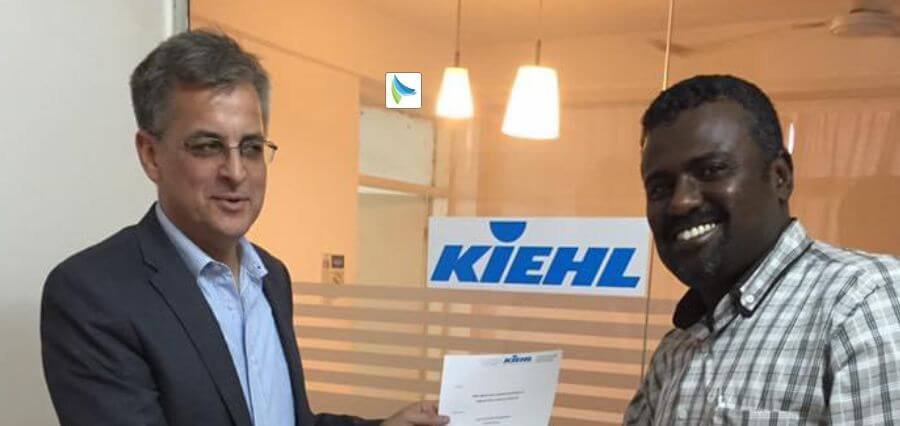Commencing his career in the procurement niche with HP/Agilent Technologies as the Regional Procurement Manager, Sebastian Chua. He then moved on to join Microsoft, Citibank & Alcatel Lucent as Head of Procurement to transform their procurement organization in the Asia Pacific region.
Since 2014, he reports to the CEO of the Health Promotion Board, Ministry of Health Singapore, as Head of Procurement. From 2020 to 2022, Sebastian led a team of procurement and contract management officers in the nation’s fight against the Covid-19 pandemic. In recognition of his contribution to this national effort, he received a Special Mentioned Covid-19 Award from Supply Chain Asia and was conferred a Public Administration Medal by the Singapore Prime Minister’s Office.
From 2017 to 2021, Sebastian was conferred the Asia Pacific CPO Awards by (a) Procurement Leaders Limited (UK), (b) Chartered Institute of Procurement & Supply (UK), (c) Supply Chain Asia and (d) China Procurement Success. In 2020, he was voted as one of the top 10 Procurement Executives Worldwide by Supply Chain Dive. In 2018, he also received the Public Service Innovation Champion Award from the Head of Civil Service, Singapore.
His Procurement Papers (a) “Transformative THINKING. Transformative DOING (b) “From Gatekeeper to Business Enabler,” and (c) “Can Innovation go with Procurement” were published in The Journal of Public Procurement (USA), APAC CIO Outlook and Supply Chain Asia.
Sebastian is the former Chairman of The Supply Chain & Procurement Council under Supply Chain Asia and an advisory member to the Association for International Procurement Technology and Standards (AIPTS).
In an interview with Insights Success, Sebastian shares valuable facts that highlight his professional tenure and his journey so far in the procurement niche.
What challenges did you face along the way?
In most companies, a Procurement job is perceived as an unglamorous, unloved part of the business. A fast track to nowhere. Sourcing and supplier management is strictly about costs, and all that matters is playing hardball to get these as low as possible. Procurement has no connection to innovation or strategy or creating positive value.
There are many contributing factors, internal and external. Internally, how do we as procurement people see in ourselves? Do we have the desire to change? No one can teach us passion, purpose, drive, and innovation. Only we can be our own worst enemy.
Many times, we are surrounded by negative thinking people, so we don’t grow. We should change our environment in order to watch our growth. And no matter how much the world tries to hold us back, we should always continue with the belief that what we want to achieve is possible.
Believing we can become successful is the most important step in achieving it. The conditioning of the mind is very strong. When we condition ourselves to be tied down, we lose. Breakthrough thinking is required to break new ground.
What will be the next significant change in the procurement industry?
In the digital economy, we cannot solve our problems with the same thinking that we used when we created the problems. We should capitalise on digital technology to transform the business strategy, optimise business performance and discover game-changing innovations. It offers us an opportunity to make procurement awesome and earn us a seat at the board meeting.
With digital transformation, we are not only delighting customers with an interactive, user-friendly experience but also extending it to achieve operational excellence and realize cost efficacy and business agility. A shift that is beneficial for businesses and customers alike.
However, we do need to know that digitalisation alone cannot transform any business. We need both human skills and digitalisation to transform our jobs. Digitalisation is not the target; it is the enabler. We need to focus on how it drives value and deliver results. Like most disruptive technologies, benefits do not necessarily go to early adopters. The success goes to those companies who know how to absorb and manage change.
In a digital world, procurement should call for new skill sets and disciplines to adequately embrace and drive digital transformation. What are these key attributes?
One, Intellectual curiosity – To deliver faster insight for business decisions, analytical skills will be in high demand. Procurement needs to know how to ask the right “why” questions, detect patterns in data, find cause-and-effect relationships and challenge the status quo.
Two, Technology savvy – Procurement does not need to become data scientists, but we need to be familiar with new technologies, so we can have intelligent conversations with IT and quickly adopt new tools that do not require IT intervention.
Three, Business acumen – As a business function, procurement needs to have a thorough understanding of the company, its operations, its value drivers and competitive environment.
Last, Storytelling skills – Data is the mechanism that makes digital business possible, but the delivery mechanism is a story. The best digital technology won’t change the mind of the CEO if the results or outcomes cannot be expressed in the form of a story, a business problem or a solution.
What advice would you like to give the next generation of aspiring procurement leaders?
To become successful in procurement, technical skills are given, but entrepreneurial skills need to be in focus. For example, a leading CPO is less of a functional master of procurement, and more of an enterprise leader who manages the business.
What are the enterprise skills in procurement? I would summarise them into CIPS (not the Chartered Institute of Procurement & Supply):
C – Challenge conventions. The critical thinking, creativity, and curiosity to understand the business needs and market capability, with the intellect to connect both with solutions.
I – Innovation. Intuition, influencing skills and integrity. And not forgetting the I for Investment on our staff.
P – Provoke new thinking. Passion, purpose, positive thinking, predictability, perseverance, persuasion, and people management skills.
S – Solve problems. The service orientation mindset, salesmanship, and speed to sell ideas convince the business that procurement can help them to be successful.
For procurement to prosper, we need to deliver on what, where, when, why and how of the customers.
Therefore, I see procurement as a complete business role. We must lead with the head, hands, heart, and guts:
The head to understand the totality of the business. The hands with credible experience and track records, armed with finance and legal knowledge. A heart that wants value for all partners and is perceived as one with principle and is trustworthy. Finally, are we strong advocates of change management, unafraid of manageable risks and managing conflicts?



















